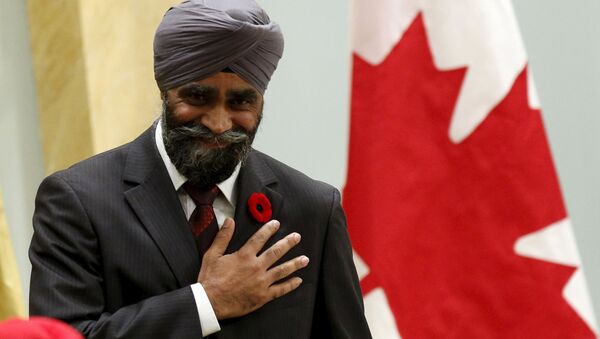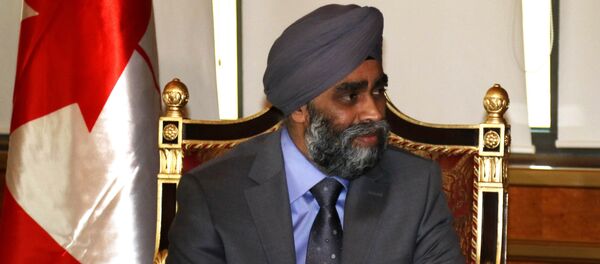“Of course they want to keep our CF-18s there,” Sajjan noted in a radio program on CBC Saturday. However, an aerial campaign alone is not the “responsible” thing to do in the existing conditions.
“The responsible thing, in my opinion, is to make sure we, as a coalition partner, look at the current situation, the needs of the coalition,” he said. “When you look at the current situation, the conversation is […] ‘How do we target more?’”
At present, an airstrike mission is clearly just not enough – in contrast to the earlier phase of the war, when Daesh was “in the open”.
“Now the fight has gone into where you need to be able to define and find your target, and then be able to have that impact on the ground,” Sajjan stressed out.
Canada’s CF-18 fighter jets currently take part in air combat missions with the US-led international coalition against the Islamic State (Daesh) militant group, which is outlawed in many countries including Russia. Canada has also deployed 70-strong special forces to train Kurds in the Iraqi Kurdistan since 2014.
New Prime Minister Justin Trudeau said late last year that all Canadian aircraft will be withdrawn from the conflict by March 31, 2016.
@RCAF_ARC CF-18 Hornets of 439th Tactical Fighter Squadron at Camp Canada Dry, Doha, Qatar. #DesertStorm pic.twitter.com/PdAnXnMfEQ
— Adrian Bouressa (@AdrianNov89) January 16, 2016
Boots on the ground
After suggesting a ground force is now a key to the military victory against Daesh, minister Sajjan immediately refuted Canadian troops alone will get the job done. He seems a common “advise and assist” program will do fine for Kurds and Arabs in Iraq, who will be able to effectively stand against jihadists.
While in Iraq, MND Sajjan also held talks with KRG officials and visited #CAF members deployed on #OpIMPACT pic.twitter.com/YAWrDwTvIo
— Canadian Forces (@CanadianForces) December 22, 2015
“Just as we phased our training in Afghanistan and were able to slowly pull away, this is one of the effective tools we’re very good at,” Sajjan, who was on military missions in Afghanistan three times, commented.
Instead, Canada’s military has another work to concentrate on at home: engaging more women and minorities to enlist.
“The military, even when I was serving, has made strides in trying to connect with all Canadians… but we can do better,” he pointed out.
Currently, women account for under 15 percent of military members and minorities comprise about 5 percent.





